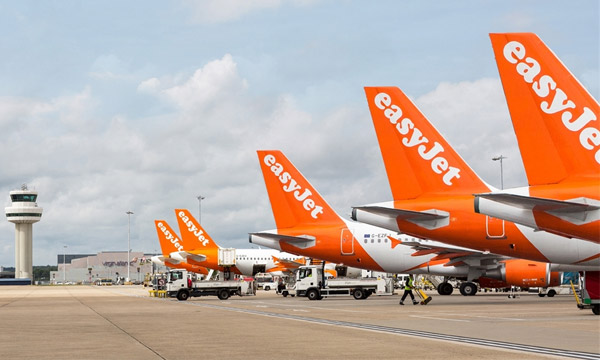Maintenance is evolving at easyJet |
| Emilie Drab in London |
|
|
31 OCT 2019 | 533 words
|
 |
© easyJet |
|
|
|
EasyJet is constantly searching for efficiency and maintenance is not being left out. During a speech at the MRO Europe exhibition, Brendan McConnellogue, the airline's Director of Engineering and Maintenance, explained the airline's philosophy in terms of maintenance, its evolution and what it expects from its service providers.
EasyJet's fleet now has 332 aircraft and while it appears to be a very homogeneous fleet since it contains only A320 family narrowbodies, it is still affected by certain drawbacks of heterogeneous fleets. Its aircraft have an average age of 7 years old, and some of the them are close to sixteen years' service. It has also picked up aircraft from Air Berlin, Avianca and Monarch fleets. It has ceos and neos and A321neos with ACF cabins. All of these different configurations make their requirements more complex.
To take care of all its aircraft, the low-cost airline had initially adopted an equalised maintenance programme, which was quite innovative at the time, and which involved carrying out major inspections in several instalments over several nights to avoid extended immobilisation of its fleet as much as possible. "This worked very well until the planes reached six years old", explains Brendan McConnellogue. But when it comes to the fourteen days required for the six-year inspection (24 000 fllight hours), maintenance work packages become harder to distribute. easyJet has therefore returned to more traditional block maintenance programmes". Its equalised maintenance activity still covers two thirds of its fleet.
EasyJet's maintenance director also emphasised that the airlines expenditure in this area in 2018 reached £313 million (363 million Euro) - accounting for 6% of total expenditure. It was a little higher than forecast due to the investments made to improve the fleet's resilience and limit the reserve fleet. In particular, easyJet took its maintenance back in-house at Gatwick a year ago. It has 95 aircraft under its supervision, with the others entrusted to service providers (notably SR Technics and Lufthansa Technik). Other services may be taken back in-house, "this depend on how the MRO will respond to the airline's requirements".
Indeed, an aircraft which is kept on the ground for longer than scheduled always represents a handicap for easyJet's operational performance. But with the entry into for of the EU261 regulation (on passenger compensation in the event of delays), a real sword of Damocles is hanging over airlines' financial balance sheets, a threat that easyJet doesn't want to contemplate. Therefore, it is calling on MRO and OEM to up their performance and give as much importance as it does to TAT (Turn around time) to eliminate delays related to aircraft maintenance. "Any delay which can be avoided must be avoided", which must be the case for them.
To achieve this, Brendan McConnellogue is calling on MRO to adapt be become more efficient and invest to develop more innovations: "we can't stay bound to the past". In particular, he sings the praises of data analysis and predictive maintenance "which have a 90% success rate" and which must be developed. "A fast-reacting MRO and a fast-reacting OEM are what will help us reduce operational disruption".
easyJet's technical division has 450 members of staff, with 55% of them assigned to Part M and Part 21 qualifications, with the remaining 45% Part 145.
|
|
 |
Emilie Drab
Assistant editor
Civil aerospace, Air transport
|
|
| |
They made this section possible |
|
|
|
|
|
|
|
|
|
|
|
|
|
|
|
|
Top stories |
|
|
|
|
|
Top stories
|